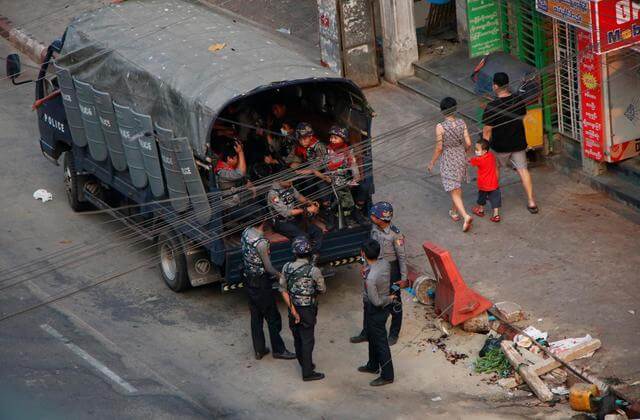
US Suspends Trade Deal with Myanmar over Coup crackdown
The United States suspended a trade deal with Myanmar until a democratic government was restored there after the February 1 coup followed by a violent crackdown on protests.
The military overthrew the elected government, jailed Aung San Suu Kyi and other civilian leaders and has killed and imprisoned protesters in the country also known as Burma.
“The United States supports the people of Burma in their efforts to restore a democratically elected government,” US trade representative Katherine Tai said in a statement.
“The United States strongly condemns the Burmese security forces’ brutal violence against civilians. The killing of peaceful protesters, students, workers, labour leaders, medics, and children has shocked the conscience of the international community.”
Ms Tai’s office said the US was immediately suspending “all US engagement with Burma under the 2013 Trade and Investment Framework Agreement”.
Under the agreement, the two countries cooperated on trade and investment issues in an effort to integrate Myanmar into the global economy, a reward for the military’s decision to allow a return to democracy — a transition that ended abruptly with last month’s coup.
Ms Tai’s announcement does not stop trade between the two countries.
Economic sanctions
But the US is separately imposing economic sanctions on Myanmar. In response to the military takeover, for instance, the US and the UK had earlier imposed sanctions on two conglomerates controlled by Myanmar’s military, Myanmar Economic Holdings and Myanmar Economic Corporation.
White House press secretary Jen Psaki noted the US had also imposed export controls on Myanmar and added several businesses from the country to a trade blacklist.
“We, of course, continue to work with our allies and partners and like-minded institutions, as we condemn the actions of the military, call for the immediate restoration of democracy, and hold those who seize power accountable,” she said.
Two-way trade between the two countries is worth comparatively little. Myanmar last year was the United States’ 84th biggest partner in the trade of goods such as automobiles and machinery.
But the US and other wealthy nations are major importers of garments and other household items from Myanmar factories, mostly owned by companies from other countries, that have led the modernisation of the impoverished country’s economy, helping provide millions of jobs.

